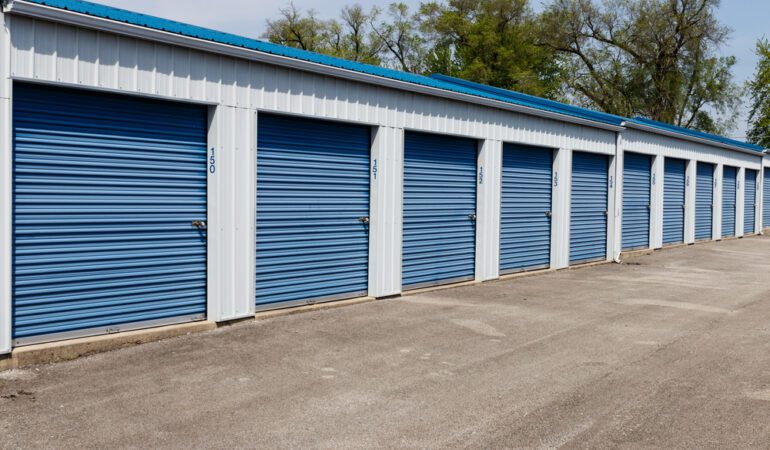Common Commercial Garage Door Problems
Common Commercial Garage Door Problems your business is ready to conquer the day on a busy Monday morning, but suddenly, your commercial garage door decides to perform on its own. The clanging and groaning pierced through the air, attracting the attention of customers waiting nearby. You watch as your garage door sluggishly inches its way up or down, throwing a wrench into your planned schedule. And just when you think it can’t get worse, it refuses to budge at all, leaving your business exposed and vulnerable. These are the nightmares that noisy operation, slow or uneven movement, and opening or closing problems can unleash on your small business. But fear not, for with the right knowledge and proactive measures, you can silence the chaos and ensure your business remains a well-oiled machine. Let’s explore the common commercial garage door problems and how to address them.
Common Garage Door Problems
The most frequent commercial garage door issues that could disrupt your business, include noisy operation, slow or uneven movement, and problems with opening or closing. We address some of the minor issues with suggested solutions, however, a professional repair company may need to be considered. Incorporating these solutions into your garage door maintenance routine can help resolve common issues and extend the life of your commercial garage door. Common Commercial Garage Door Problems.
Noisy Operation
- Regular Maintenance: Schedule routine maintenance checks by a professional technician to lubricate moving parts, tighten loose components, and identify potential sources of noise.
- Replace Worn Parts: If the noise persists, consider replacing worn-out components such as rollers, hinges, or springs with quieter, high-quality alternatives.
- Noise Dampening Kits: Install noise-dampening kits designed specifically for garage doors. These kits typically include insulation and vibration-reducing materials to minimize sound.
Slow or Uneven Movement
- Lubrication: Ensure all moving parts are adequately lubricated. Use a high-quality garage door lubricant on hinges, rollers, and tracks to improve smoothness of movement.
- Spring Adjustment: Have a professional technician adjust the tension of the garage door springs to ensure balanced movement.
- Track Alignment: Inspect and realign the tracks to ensure they are straight and parallel, preventing any obstacles that might hinder smooth operation.
Problems with Opening or Closing
- Sensor Check: Ensure the safety sensors are clean, aligned, and free from obstructions. Misaligned or blocked sensors can prevent the door from closing properly.
- Remote Batteries: Replace remote control batteries regularly to ensure consistent signal transmission to the door opener.
- Spring Replacement: If the door is too heavy to open or close, consider replacing the springs to restore proper balance and functionality.
- Professional Inspection: If problems persist, or if you suspect an issue with the garage door opener or electrical components, it’s essential to have a professional technician inspect and repair the system to avoid potential safety hazards.
When it’s time to call a Pro
Some garage door problems require the expertise of a professional garage door repair company. It’s not always safe to tackle the problems yourself. Listed below are examples of when to call a professional garage door repair company and why.
- Electrical Malfunctions
If your garage door opener or control system experiences electrical issues, such as short circuits or wiring problems, a professional technician is necessary to safely diagnose and repair these complex electrical components. Common Commercial Garage Door Problems. - Spring Replacement
Torsion or extension springs that have snapped or lost tension can be extremely dangerous to handle without the proper tools and training. A professional repair company can replace them safely and restore the door’s balance. - Panel Replacement
Damaged or dented panels not only affect the appearance but also compromise the security and insulation of your garage door. Individual panels can be sourced more efficiently from manufacturers by professional door companies or they may have the panels in stock. - Opener Malfunctions
When your garage door opener starts behaving erratically, whether it’s failing to respond to remote controls, making unusual noises, or not functioning at all, it’s best to have an expert diagnosis before you spend money replacing unnecessary parts. - Track and Roller Issues
Misaligned or damaged tracks, as well as worn-out rollers, can result in uneven and unsafe door movement. Realignment of tracks and replacement of rollers can be tricky and repair companies ensure smooth and secure operation, as these are daily repairs for their business. - Sensor Problems
Faulty safety sensors can prevent your garage door from closing properly, posing a safety hazard. If you are unable to address simple solutions for this repair, the sensor may require calibration, repair, or replacement. - Major Structural Damage
Severe damage caused by accidents or extreme weather events might require substantial structural repairs or even a full door replacement. Contact a professional for an estimate for the extensive repairs. They will be able to provide a timeline for replacements and be able to secure your facility while waiting.
Common Commercial Garage Door Problems With these tips, you should be able to address simple solutions for minor repairs and the knowledge of when to entrust more complex garage door problems to professional repair companies. Common Commercial Garage Door Problems It’s not just a matter of convenience and saving money, but also a critical safety consideration when attempting commercial garage door repairs. Tackling these issues without the necessary skills and tools can lead to accidents, increased repair costs, and extended downtime for your small business. Hiring professionals ensures a quick and effective resolution, allowing your business to operate smoothly and securely. Common Commercial Garage Door Problems.
